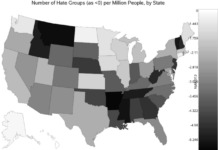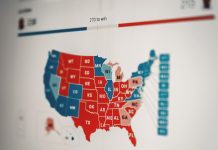While you may have heard about vote trading, are you sure what it means? Well, according to the Wikipedia definition, vote trading is defined as:
“The practice of voting for or against another person’s bill, position on a more general issue, or favored candidate in exchange for the other person’s vote for or against a position, proposal, or candidate that one supports.”
According to a new report from Vox, there’s plenty of trading going on right now via social media sites, and the goal is to make sure Donald Trump doesn’t win the 2016 election.
Amit Kumar is one of the first to realize that the contest between Clinton and Trump had to go in the direction of the Democratic nominee. How, he wondered, could he help assure that? What he came up with seems obvious, so he decided to put theory into practice and let voters trade their votes. Here’s how it works:
- Using the app created by Kumar, voters go to a website where third-party voters in swing states can swap candidates with Clinton supporters in safe states.
And the app is easy to use. It poses a series of questions to determine both your location and political leaning:

Once you answer the questions, you’re redirected to a chat room where Clinton voters in “safe””states propose trades with Jill Stein, Gary Johnson, and Evan McMullin voters located in swing states:

Once you make a trade with another voter, you both cast your ballots as you’ve promised. Yes, everyone is on the honor system. But some traders also provide a selfie of themselves casting the ballot as they said they would.
Is vote trading new? Nope. As a matter of fact, it was first proposed back in 2000, when George W. Bush faced Al Gore. Constitutional law professor Jamie Raskin was hearing from Gore voters in Republican-controlled states who rightly saw their votes as being useless. There were also lots of Ralph Nader supporters in swing states who were longing to vote for Nader, but had fears about Bush becoming President. Solution? Vote swapping. Nader voters even became known as “Nader’s traders” for their vote swapping. It didn’t keep Bush from winning, but it may have made the race closer than it would have otherwise been.
Now the most important question: Is any of this legal? A 2007 court case suggests it certainly is. Porter v. Bowen, established vote trading as “clearly protected by the First Amendment.” Though it’s the only case so far, it does establish a precedent, and in legal terms, that makes it the controlling legal opinion as of now.
Jason Haner is a libertarian who lives in Pennsylvania, a key swing state. He wanted to vote for Gary Johnson, but what if that helped elect Trump? He faced a moral dilemma:
“I wanted my voice to be heard, but I also knew there was a risk of Trump being elected if I voted for my candidate in a swing state. So I decided to trade.”
Haner wound up trading his vote with a Clinton supporter in California, a state which Clinton will likely win by double digits. So Haner accomplished both of his goals, which he says makes him very content:
“The reason I checked this out was to still have my voice heard while preventing a really bad candidate from being elected. But I also want my party to get one vote closer to the 5 percent popular vote to try to help them get government funding for the next election from the presidential election fund.”
So now all we have to do is sit back and wait for the Donald to start yelling that all this is “rigged” and therefore he never had a chance. Hopefully he never had one in the first place.
Featured Image Via NeverTrump





